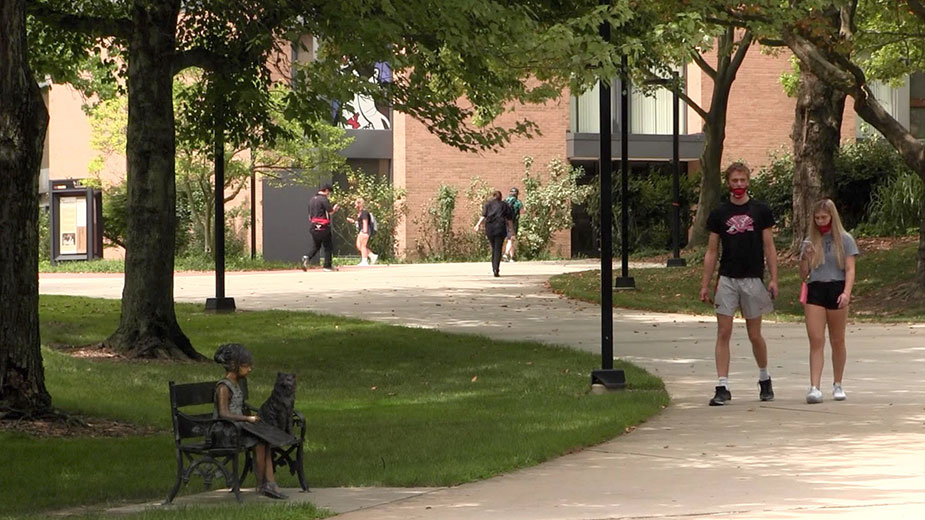By Dr. Brien N. Smith
Provost and Vice President for Academic Affairs
YOUNGSTOWN, Ohio – The term “pathways” has become increasingly relevant in higher education circles as we in the academic world continue to explore ways to improve the success and the experiences of our students.
Over the course of the past year, improving pathways to success has been a major focus of our Academic Affairs team and the entire campus at Youngstown State University.
For starters, we began the year by encouraging some energetic housecleaning of course portfolios in every one of our academic departments. After reviewing the academic catalog, our department chairpersons found that YSU has – literally – hundreds of “dead” courses on the books that are either outdated, inactive or will never be offered.
At the same time, we’ve been considering the number of majors presented to prospective students. Currently, prospective students are prompted to scroll through and pick from a list of 250 major choices and possibilities.
Although choice isn’t necessarily a bad thing, sometimes too many choices prevent students from selecting the best pathways. If a course catalog contains hundreds of “dead” courses or courses that are not likely to be offered, students might enroll intending to pursue pathways that no longer exist.
Similarly, presenting prospective students with a cascading list of more than 250 major options adds unnecessary complications to the already-challenging process of selecting an appropriate academic pathway.
So, we are working diligently on presenting a current, realistic course portfolio in addition to a more condensed list of major options to ensure that students find their way to the academic pathways most suited to their interests and abilities.
Next, we are identifying areas in the curricula that are unnecessarily complex. Obviously, curricula in some programs are always going to be more complicated than others. Some programs need additional options to allow for a range of student experiences. But the more unnecessarily complex any curriculum becomes, the more confusing it can be for students (and their advisers) to navigate. And it can increase the potential for students to “take a wrong turn,” make a mistake and step off the prescribed pathway. That could mean a student takes a course that doesn’t count toward graduation or misses out on taking a course that won’t be offered until the next academic year, resulting in added tuition expense or even delayed graduation.
This year, our academic departments are working to offer courses that students need to remain on their pathways and are scheduling those courses as efficiently and effectively as possible. For instance, students frequently get delayed on their pathways due to unnecessary prerequisites and corequisites. At least two-thirds of our courses have a prerequisite; therefore, we’ve asked department chairs to work with faculty to review and eliminate unnecessary prereqs/coreqs.
We also recently announced shifting gears from a process of curricular efficiency to a process of Academic Program Transformation, acknowledging the need to align programs with necessary industry and workforce skills, representing the next stage of students’ pathways. A commitment to teaching that demonstrates accountability to industry and community ensures that program offerings continually adapt to meet the needs of those that YSU serves.
Through Academic Program Transformation, we intend to ensure institutional mission and program goals are aligned so that faculty members and students are equally engaged in a unique educational experience that serves as a differentiator for every YSU graduate.
For more details about these efforts, visit the website of the YSU Strategic Plan to Take Charge of Our Future.
